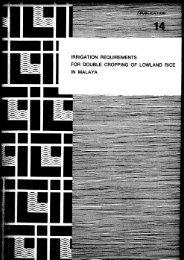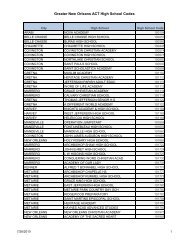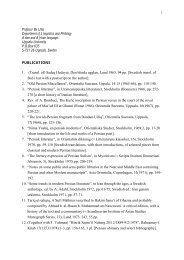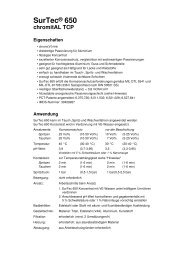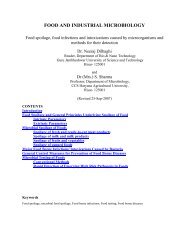On the Future of Indigenous Traditions - Munin
On the Future of Indigenous Traditions - Munin
On the Future of Indigenous Traditions - Munin
You also want an ePaper? Increase the reach of your titles
YUMPU automatically turns print PDFs into web optimized ePapers that Google loves.
Broadly speaking, <strong>the</strong>se three reasons were <strong>the</strong> basic reasons for keeping Jharkhand as<br />
a ‘concubine’ <strong>of</strong> Bihar shared by o<strong>the</strong>r adjoining states. The local phrase for<br />
Jharkhand <strong>of</strong> being a part <strong>of</strong> Bihar was <strong>the</strong> ‘milking cow’. <strong>On</strong>ce <strong>the</strong> cow cannot be<br />
milked any more, it is sent to <strong>the</strong> slaughter house for making pr<strong>of</strong>it out <strong>of</strong> every bit<br />
left! The colonial time was <strong>the</strong> time <strong>of</strong> discovering this ‘cow’ and ‘raising her to be<br />
milked’ in <strong>the</strong> form <strong>of</strong> <strong>the</strong> tenancy laws and rules for administering <strong>the</strong> region for<br />
tenancy and in <strong>the</strong> past independent times for fur<strong>the</strong>r exploitation.<br />
In <strong>the</strong> larger frame if we look at both <strong>the</strong> socio-cultural and political issues <strong>of</strong> <strong>the</strong><br />
Adivasi in Jharkhand in <strong>the</strong> post-independent era, we can also see clearly <strong>the</strong> legacy<br />
that was left behind by <strong>the</strong> colonial system, left to <strong>the</strong> Bihar state, that contributed<br />
much to <strong>the</strong> mindset <strong>of</strong> ‘milk thy neighbour’s cow!’. The colonial government left <strong>the</strong><br />
country more than fifty years ago, since India attained independence. However, it is<br />
observed that <strong>the</strong> process <strong>of</strong> colonial exploitation has not stopped with independence,<br />
ra<strong>the</strong>r “in <strong>the</strong> name <strong>of</strong> development, a new form <strong>of</strong> domination referred to as internal<br />
colonialism is being unleashed… It is also observed that <strong>the</strong> ruling elite look at<br />
Jharkhand and its inhabitants as commodities <strong>of</strong> exploitation, probably <strong>the</strong> cheapest<br />
and most sought after commodities in <strong>the</strong> Indian market.” 61<br />
The extant <strong>of</strong> exploitation and marginalization <strong>of</strong> <strong>the</strong> Adivasis is widespread, despite<br />
<strong>of</strong> <strong>the</strong> provisions <strong>of</strong> <strong>the</strong> Fifth Schedule <strong>of</strong> non-transfer <strong>of</strong> Adivasi land to non-<br />
Adivasis, <strong>the</strong> Chottanagpur Tenancy Act, <strong>the</strong> Santhal Pargana Tenancy Act and <strong>the</strong><br />
Wilkinson Rule toge<strong>the</strong>r reserved this right <strong>of</strong> <strong>the</strong> Adivasi, but <strong>the</strong> amendments made<br />
exceptions for transfer in it for ‘public purpose’ etc. The extent <strong>of</strong> displacement in <strong>the</strong><br />
process <strong>of</strong> industrialization is illustrated by <strong>the</strong> following few historical facts cases.<br />
2.7.1. Development & Displacement: What happens to <strong>the</strong> Adivasis<br />
In <strong>the</strong> time <strong>of</strong> <strong>the</strong> post independent period industries like: Rourkela Steel Plant,<br />
expansion <strong>of</strong> Jamshedpur from town to a city, Heavy Engineering Corporation<br />
Ranchi, Bokaro Steel Plant and a number <strong>of</strong> o<strong>the</strong>r such estates which were said to be<br />
61 Ma<strong>the</strong>w Areeparampil, Struggle for Swaraj, A history <strong>of</strong> Adivasi Movement in Jharkhand (from <strong>the</strong><br />
earliest time to <strong>the</strong> present day) (Jharkhand: TRTC, 2002), 1.<br />
48





